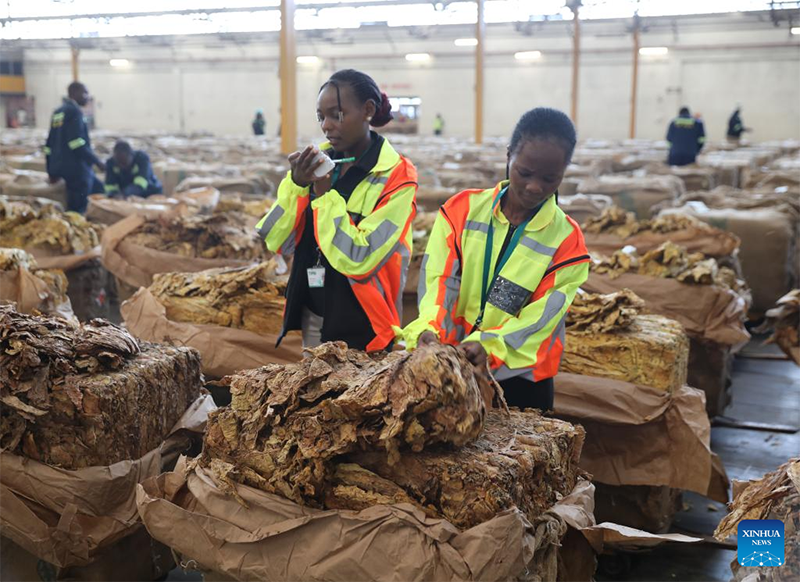- Agriculture
- No Comment
‘We are exporting jobs’ – says VP as 98 percent of Zimbabwe’s tobacco sold in raw form

“Government is concerned that we still export 98 percent of our tobacco in raw form, in the process exporting jobs and value. We need to create jobs here in Zimbabwe. We need to add value to our produce,” said Chiwenga
By Xinhua
HARARE: Zimbabwe’s 2024 tobacco marketing season opened Wednesday, with increased calls for climate-proof tobacco production amid unpredictable rainfall patterns.
Zimbabwean Vice President Constantino Chiwenga said while Zimbabwe’s tobacco crop this year is projected to be slightly lower than the 296 million kg of tobacco recorded last season, the marketing season is promising.
“We cannot get the 300 (million kg) we wanted, but I am happy that the irrigated crop has proved to be good, and it is the dry land crop that has suffered a bit, but the season is looking good in 2024,” Chiwenga said in his opening remarks during the official opening of the marketing season at the Tobacco Sales Floors in Harare, the capital of Zimbabwe.
This year, the tobacco crop is expected to decline slightly due to a drought caused by El Nino, a natural and recurring weather phenomenon that warms parts of the Pacific, affecting weather patterns.
Due to El Nino, the farming season was characterized by the late onset of rains and a dry spell.
The hectarage of tobacco cultivated and the number of growers also slightly declined, according to the Tobacco Industry and Marketing Board (TIMB), the national industry regulator.
To maximize benefits from the country’s vibrant tobacco sector, Chiwenga called for the domestic value addition of the cash crop.
“Government is concerned that we still export 98 percent of our tobacco in raw form, in the process exporting jobs and value. We need to create jobs here in Zimbabwe. We need to add value to our produce,” said Chiwenga.

He said the government is creating an enabling environment for entities interested in the value addition of Zimbabwean tobacco in the broader framework of an economy led by the private sector.
Patrick Devenish, TIMB chairman, said there has been a decline in tobacco production owing to El Nino, adding that there is a need to climate-proof the country’s agriculture sector. “Our ministry of agriculture is putting a massive amount of work into climate-proofing our agricultural sector, and there are many different irrigation programs going on,” Devenish told Xinhua.
Zimbabwean Minister of Lands, Agriculture, Fisheries, Water and Rural Resettlement Anxious Masuka said smallholder farmers, who are the backbone of the tobacco farming industry, should access affordable irrigation facilities.
“We must take innovative ways to climate-proof agriculture. Seventy-five percent of our tobacco is grown by the smallholder sector who invariably depend on the rains to plant their tobacco,” he said in his address.
Small-scale farmers who spoke to Xinhua Wednesday at the tobacco sales floors said access to irrigation facilities remains a challenge.
“Some farmers managed to irrigate their crop, but most of us failed because investing in irrigation facilities is capital intensive,” said Olivia Bebvu, a small-scale tobacco farmer from Banket, a farming area northwest of Harare.
The start of the tobacco marketing season is an important event in Zimbabwe’s farming calendar, as tobacco accounts for the country’s largest agricultural exports.
The southern African country’s tobacco is renowned worldwide, contributing significantly to the country’s foreign currency earnings, bringing in close to 1 billion U.S. dollars in export earnings, according to the TIMB.
This year the first bale of the golden leaf was auctioned for 4.92 dollars per kg compared to 4.35 dollars last year.
